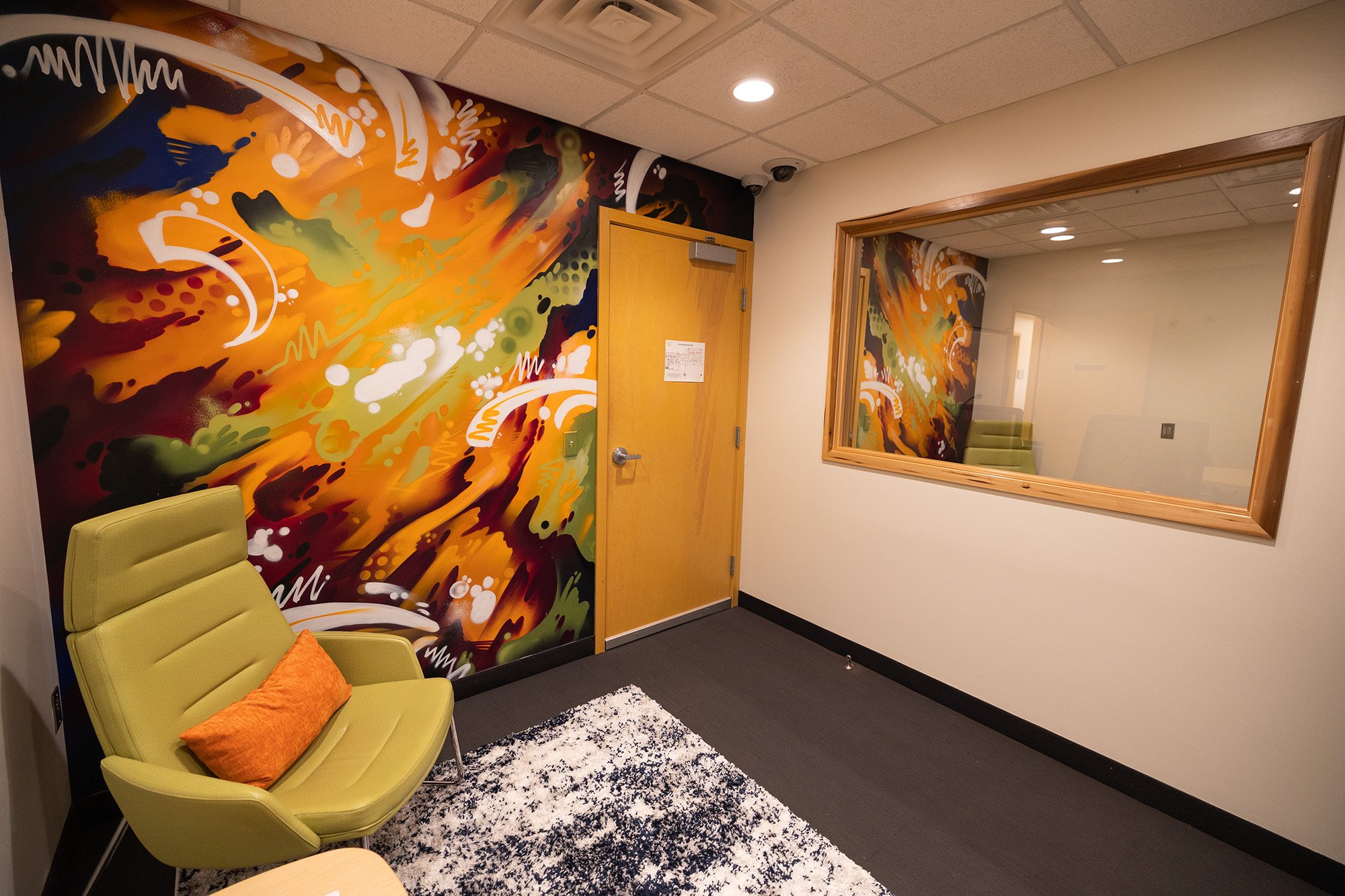
Forensic Interviews

What is a Forensic Interview?
When sexual abuse of a child or teen is reported in our community, law enforcement or Child Protective Services contacts the Children’s Advocacy Center to schedule a forensic interview. A forensic interview is a one-on-one conversation between a child and a specially trained interviewer that provides the child an opportunity to talk about the reason for their visit to the CAC.
The interview is usually the first step in an investigation and is designed to be neutral, non-leading, and child-centered. The interviewer aims to make the child feel comfortable while asking open-ended questions at a pace that's comfortable for the child. While we primarily conduct forensic interviews for allegations of child sexual abuse, we sometimes will use this protocol for physical abuse of a child, when a child is a witness to a violent crime, or with adults who are vulnerable due to developmental disabilities.
The Forensic Interview:
Reduces the number of times a child has to tell their story and limits the number of people who participate in gathering information from the child
Helps determine whether a child has been abused, develop a safety plan for the child, and begin to build a framework for the criminal prosecution of the abuser (if appropriate depending on the case dynamics)
Facilitates coordination of services for the child and family
Allows for the family to receive crisis support
Introduces the parent/caregiver to professionals involved with their child’s case and provides an opportunity to ask questions
What to Expect
At the Children’s Advocacy Center, we approach allegations involving child victims through the lens of a Multidisciplinary Team (MDT) that consists of community disciplines and agencies who may have a role or take part in the case involving your child. You will have an opportunity to meet some of the MDT Members on the day of your child’s Forensic Interview. All of these professionals are assigned to specially work these cases and are sensitive to the potentially difficult and confusing time your family might be experiencing. The MDT’s overall goal is to complete a thorough investigation while prioritizing the needs of your child.
The Forensic Interview Process
On the day of the interview, you (the non-offending caregiver) will have an opportunity to meet the MDT members assigned to your child’s case. They will talk with you prior to the forensic interview in order to gather information about your family, your child, and the concerns.
Your child will be forensically interviewed in a developmentally appropriate room. Your child will meet one-on-one with an interviewer specially trained in the State of Michigan’s Forensic Interview Protocol. Some Multidisciplinary Team members assigned to the case will observe the Forensic Interview remotely from an observation room. In order to maintain best practice and credibility, all forensic interviews are recorded and stored securely.
The MDT will meet with you, the non offending caregiver, after the interview to review what was disclosed. The MDT will provide recommendations if further care is needed and talk to you about next steps.
FAQs
-
You can reassure your child that the CAC is a safe place where they can talk to a trusted adult about their safety and any concerns they may have. It's important to remind them that they're not in trouble. If they've already shared something with you, let them know they're coming to discuss it and that the people that work at the CAC are there to help them and their family.
-
The length of Forensic Interview appointments can vary, but plan on being at the CAC for approximately 2-3 hours. If you have any time constraints, please inform your detective in advance.
-
Our policy at the Children’s Advocacy Center allows only professional staff and members of the investigation team to observe the forensic interview. This policy ensures a neutral environment for your child, protects the integrity of the investigation, and minimizes stress and anxiety for them. It also helps reduce the number of witnesses involved in each case, which is crucial for maintaining confidentiality and ensuring accuracy. We understand you may want to be present, but it's important for the interviewer to speak with your child one-on-one. If your child has experienced abuse, they may find it easier to discuss it without you present, as they might be concerned about how their disclosure could affect you. Our goal is to create a safe space where children can speak openly about what happened. This approach supports your child's emotional well-being and helps us gather accurate information for the investigation.
-
You will meet with an advocate who can answer your questions and offer support during the interview. This staff member will be glad to listen to your concerns and offer referral for services to support you and your family throughout the process.
-
We record every forensic interview digitally, so victims don’t have to repeat their story multiple times. Children are made aware of the camera and microphone. The recording is protected and is only shared with professionals who need to watch the interview to do their jobs.
-
The appointment may be challenging for your child, but the interview is child-centered, developmentally appropriate, and trauma-informed. Your child leads the conversation and can choose what to share. Any concerns identified during the interview will be addressed by one of our Crisis Counselors.

Client Testimonials
-
“I feel so much better after talking, like a huge weight has been lifted off my chest.”
— CAC Client
-
“Forensic interviewing for our young children was something we thought of as impossible. We were proven wrong as soon as we walked through the door. My children were greeted in a way that made them feel safe. They engaged with and shared things with the interviewer with such ease and accuracy. "
— CAC Client
-
“The staff were calming, kind, attentive, and I could tell they are passionate about helping victims. I appreciate them for supporting us so well during such a sensitive and emotional time.”
— CAC Client



